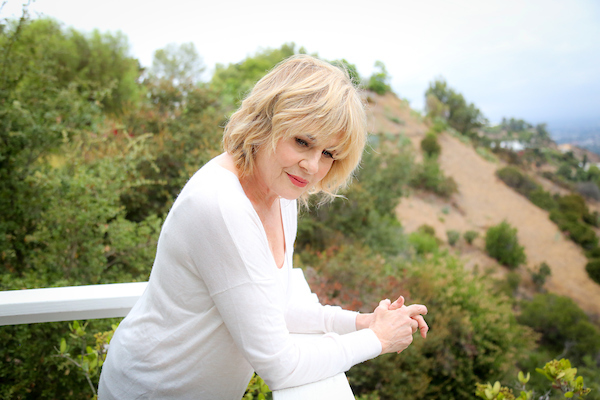We don’t know what’s going to happen.
This is a loaded statement for any human being. We have trouble living in the “I don’t know.” So much so, we make up stories to fill in the void. But I’ve noticed that the stories I make up are almost always negative ones. I wonder why that is since they make me feel heavy and doomed. Maybe it’s all about programming.
When I was a child and I was anticipating something good to happen, my mother told me, “Don’t get excited. You might be
disappointed.” I wondered why that mattered. It’s as if disappointment was a terminal illness that I would never come back from and I should avoid it at all costs. I guess my mother was trying to save me from feeling badly, but what she said sent me on a downward spiral before I even knew how things would turn out.
When I lost, it felt like a tragedy. When I won, I was sure that someone was going to pull the rug out from under me.
Negative stories steal our hope and our chances of enjoying life. They lessen our ability to get back up when we fall. There is a belief system that what we imagine is what we get, so whether or not you believe that, why not imagine the best instead of the worst? Why not
choose to go through life feeling optimistic? Expecting failure before we get started invites anxiety and depression into our lives. We’ve been enveloped in so much darkness for so long, its hard to trust it when we come back out. It’s hard to believe that good things can happen.
I had a writing client, Elaine, who considered herself a relationship expert. She and her husband, Brian, led three day workshops and they claimed to know how couples could stay together. They
were the envy of their workshop participants . . . until Brian left Elaine for another woman.
Soon afterward, he wrote a book that became a blockbuster bestseller about the differences between men and women. Elaine was envious and she came to me to write her own book. While we worked, she gave me unsolicited relationship advice. She couldn’t accept the fact that there were things she didn’t know. To my surprise, I found out she’d had five relationships and she was closing in on Number Six. She said that she knew a great deal about
coupling because she’s had so many husbands.
There is a Taoist story about a farmer whose horse ran away. His neighbors said, “That’s such bad luck.”
“Maybe,” the farmer said. “I don’t know.”
The next morning the horse returned with three other wild horses. The neighbors said, “How wonderful.”
“Maybe,” the farmer said. “I don’t
know.”
When his son tried to ride one of the untamed horses, he was thrown and broke his leg. The neighbors said, “What a misfortune.”
“Maybe,” the farmer said. “I don’t know.”
The next day, military officials drafted young men from the village into the army. Seeing that the son’s leg was broken, they passed him by. The neighbors said, “Your son doesn’t have to risk dying.
Things have turned out so well for you.”
“Maybe,” the farmer said. “I don’t
know.”
Achieving this state of mind is a lifelong process. Making room for “not knowing” is important because we don’t know the end of the story. It may be the beginning of a great adventure. Life is like that. We call it bad; we call it good. But we really don’t know what’s best for us.
A friend once asked me, “Why do you think we’re here?”
“Do you mean here in this room or do you mean the big ‘here?’” I asked her.
She spread out her arms. She was talking about the big “here” and there was no way I could ever answer that question. Life is a long journey of wins and loses. It’s just the way it is. When I was a teenager, I knew everything. Today I know next to nothing. I
thought it would be the other way around but there’s a comfort in knowing that I don’t know. No one expects me to come up with answers. I’m trying to face each experience with fresh eyes and a fresh attitude and learn what I can as I go along.
There are countless things we don’t know and we never will. We can philosophize about them and try to make sense of them but we won’t come away with definitive answers because there aren’t any.
A Buddhist master said, “A beginner’s mind is wide open and questioning. An expert’s mind is closed. Not knowing gives us vibrancy. “


Recent Comments